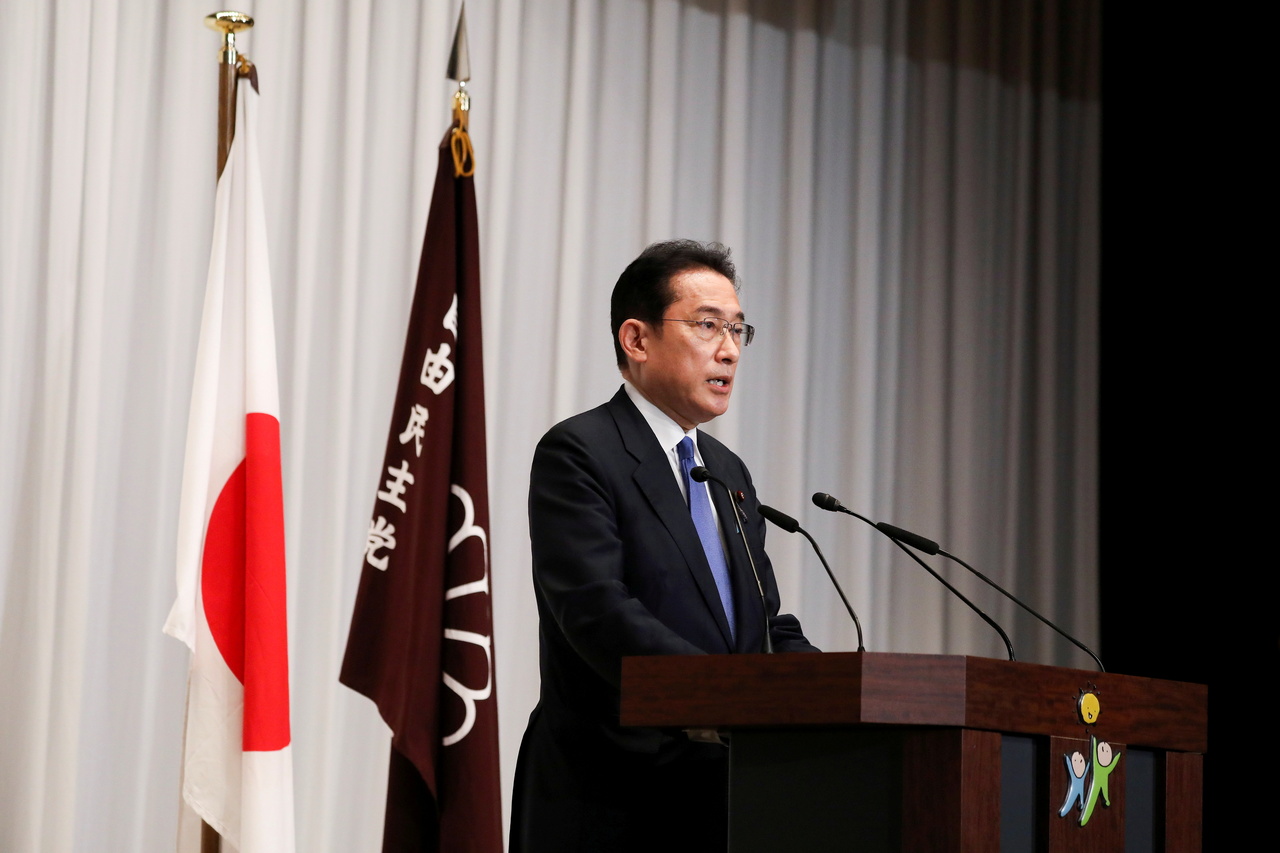Editorial Notes
Beyond discord between South Korea and Japan: Korea Herald
The paper says the leaders of both countries should do what they can to prevent their peoples' sentiment toward each other from worsening again.
Sign up now: Get ST's newsletters delivered to your inbox

Former Japanese Foreign Minister Fumio Kishida speaks during a press conference in Tokyo, on Sept 29, 2021.
PHOTO: REUTERS
Follow topic:
SEOUL (THE KOREA HERALD/ASIA NEWS NETWORK) - Former Japanese Foreign Minsiter Fumio Kishida, who won the ruling Liberal Democratic Party's leadership election Wednesday (Sept 29), is set to be elected Japan's new prime minister next week in parliament, where his party and its coalition partner commands a majority.
Kishida will replace Prime Minister Yoshihide Suga, who is bowing out of the post after a one-year stint largely overshadowed by the influence of his predecessor Shinzo Abe.
Under the new leader, Tokyo's key diplomatic and security policies are expected to barely change from the course set by Abe, who has shifted his country to the right and historical revisionism during his nearly eight-year leadership, the longest in Japan's constitutional history.
Kishida advocates Japan's close alliance with the US and solid partnerships with other like-minded democracies around the world partly to counter China's rising influence and a threat from nuclear-armed North Korea.
It has yet to be seen whether and how far Kishida will go in step with the move by his country's right-wing force to discard or water down Tokyo's past declarations that struck a tone of remorse for Japan's harsh colonial rule of the Korean Peninsula from 1910-45.
But like most Japanese politicians, he is critical of South Korea's handling of the issue of compensation for victims of colonial-era forced labor and sexual enslavement.
Earlier this week, a local court ordered Mitsubishi Heavy Industries to sell its assets here to compensate wartime forced labor victims. The ruling issued by the Daejeon District Court marked the first time that a South Korean court has ordered the liquidation of Japanese corporate assets in a damages suit filed by some victims of forced labor.
In 2018, the Supreme Court here ruled that Japanese firms involved in wartime forced labor should pay compensation to the plaintiffs. About 780,000 Koreans were conscripted into forced labor by Japan during its colonization of the peninsula, according to data from Seoul.
Separately, tens of thousands of Korean women were forced into wartime sexual slavery for imperial Japanese troops. In 2015, Seoul and Tokyo reached an agreement on the resolution of the sexual slavery issue through the creation of a Japanese government-funded foundation for the purpose of compensating to the victims, euphemistically called comfort women.
Shortly after President Moon Jae-in took office in 2017, however, Seoul decided to dissolve the foundation, virtually scrapping the agreement negotiated by the administration of Moon's predecessor Park Geun-hye with Japan. At the time, the Moon government said the accord failed to properly reflect the victims' will.
Tokyo has argued all reparation issues stemming from its colonial rule of the peninsula were settled under a 1965 treaty that normalized South Korea-Japan relations. It has insisted legal and administrative steps taken by South Korea with regard to the issues violate international law.
Kishida has adhered to this position. He particularly felt uneasy at Seoul's measure to cripple the 2015 accord, which was worked out when he served as foreign minister in the Abe Cabinet.
The Moon administration has recently suggested it would be more flexible in dealing with thorny issues with Japan, stressing the need to hold bilateral consultations at an early date.
In a statement issued after Kishida's election as ruling party leader, the presidential office of Cheong Wa Dae said South Korea would be ready to cooperate with the new Japanese government to develop future-oriented relations between the two countries.
Seoul and Tokyo face an increasing need to leave their long-running historical discord behind them and enhance forward-looking cooperation to cope with ever-evolving threats from North Korea and disruptions in global supply chains amid intensifying confrontation between the US and China.
It is notable that recent surveys of South Korean and Japanese citizens show a rising support for strengthened ties between their countries in contrast to their growing antipathy toward China's high-handed behavior.
The Moon government should depart from its inactiveness that has let historical issues with Japan be further complicated by court rulings. For its part, Tokyo needs to go beyond repeatedly calling for Seoul to first put forward a solution.
Moon and Kishida may now seem barely positioned to address in earnest long-standing discords between their nations, given Moon's five-year tenure ends in May and Kishida will focus on leading his party to a victory in November's lower house elections.
Still, they should do what they can to prevent their peoples' sentiment toward each other from worsening again and lay the groundwork for forging a long-term partnership between the two countries.
- The Korea Herald is a member of The Straits Times media partner Asia News Network, an alliance of 23 news media organisations.

